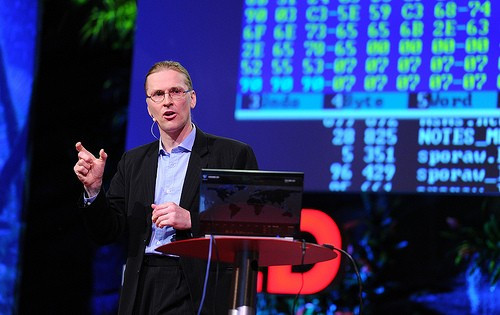Apple's App Store is Biggest Security Innovation of Past Decade
Apple's app repository is the biggest security innovation of the last ten years according to one of the most renown security researchers in the world.

Mikko Hypponen, chief security researcher with F-Secure, was speaking as he was inducted into the InfoSecurity Europe Hall of Fame and reflecting on what he called the "the best ten years for computer security."
Hypponen was asked what he felt the biggest innovation over the past decade in cyber-security was and he cited Apple's App Store model, where the company took a gamble on locking down its devices and only allowing its vetted software run on them.
"It is highly visible and a big target and yet not a single case of malware [since it launched almost six years ago]. That is a massive success story. It is a job well done by Apple and they should be congratulated," Hypponen said.
Looking back over his time in the security industry, the Finn says he has "never had a boring day in this field" and believes we have come a long way from where we were just a decade ago.
He pointed out that ten years ago, if you were using a computer, you were most likely to be using a PC running Windows XP which meant you had to manually update software, using Internet Explorer 6 to search online for various software patches.
Matter of minutes
"The situation was pretty grim just ten years ago," Hypponen said. He talked about malware that went around the world infecting hundreds of thousands of computers in a matter of minutes taking down some of the biggest computer systems in the world, grounding flights, stopping trains and affecting nuclear power plants - "we had massive problems ten years ago," Hypponen added.
The Hall of Fame inductee said you cannot even begin to compare the level of security integrated in Windows today to what was there ten years ago - "It is like night and day."
"I think we have seen a bigger improvement in computer security for the average end user during the past ten years than ever before. It has been the best ten years for computer security."
Despite the huge improvements, the security industry has never been more important to the end user, as well as now protecting critical infrastructure. The reason for this, according to Hypponen, is because the enemy has changed.
No real motives
Ten years ago the creators of malware like Slammer, Blaster and Sasser were hobbyists, individuals working on their own. They were not criminals looking to make money from their efforts. "They had no real motives for their attacks, they did not benefit in any way from the attacks," Hypponen said.
Today the security industry is fighting organised criminal gangs who use banking trojans, ransomware, denial of service attacks and other tools to steal millions of pounds from the unsuspecting average user.
Another major change over the last decade is the entry of governments onto the cyber security landscape.
"22 years ago when I analysed my first malware, if someone had told me that in 2013 that it would be an everyday occurrence for governments to create malware and trojans and use them against other nations for espionage, for spying and for cyber offensive operations - even targeting nuclear installations - I would not have believed you. Yet that is exactly where we are today."
While the past ten years have seen unprecedented improvements in cyber security, Hypponen is clear that this is just the beginning and he believes "we'll still be here ten years from now.
"No matter how much we improve our security, there are evil people on this planet and it is unlikely we will be able to secure everything from them."
© Copyright IBTimes 2025. All rights reserved.





















